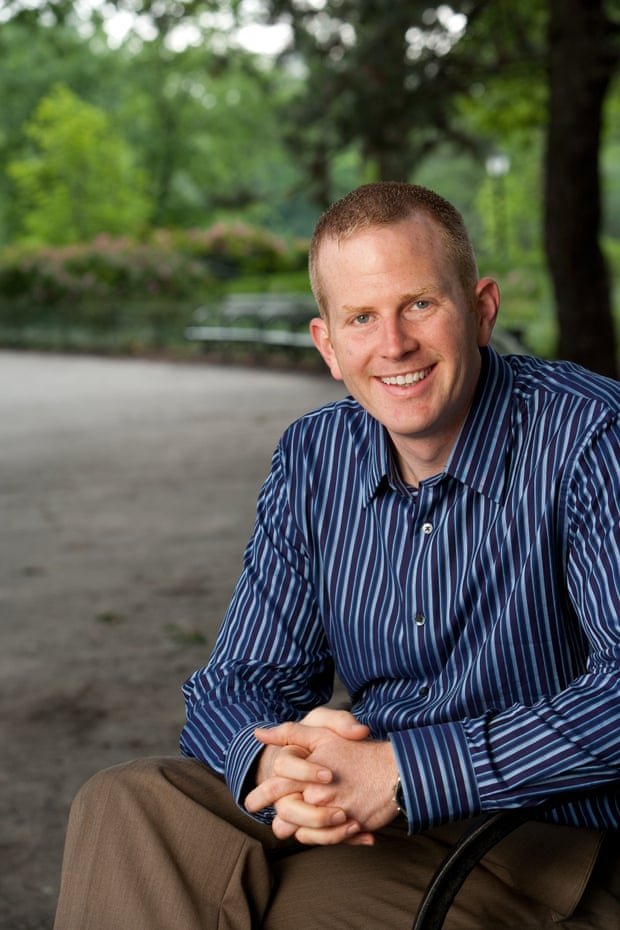Enter Clay Cockrell (née Cockroach?) banker-turned-therapist. He walks and talks through Central Park or Battery Park "as a confidant and counsellor to some of the [sic] New York's wealthiest." Why walk in Central Park? Well, we suspect that the rich like to survey their real estate around the park and institutions that bear their names. But take it from "Jim," who wrote a testimonial for Mr. Cockrell's website:
I was in therapy when I was in grad school. I hated it. The small office, the bad art, the fake plants – the therapist sitting there and saying: "uh hm, tell me more". What was the point? So when I needed to address some things in my life, I was determined not to repeat my mistakes and went looking for the best and most unusual therapy practice in New York. I found it. So THIS is what people talk about when they say how much they love therapy and won't miss it for anything. Thank you!
Mr. Cockrell's website is a veritable Wunnderkammer of the rich's neuroses, self-regard, and bad faith. But back to the horse's mouth in The Guardian:
“I shifted toward it naturally,” he said of his becoming an expert in wealth therapy. “We are trained to have empathy, no judgment and so many of the uber wealthy – the 1% of the 1% – they feel that their problems are really not problems. But they are. A lot of therapists do not give enough weight to their issues.”Yes, he might be revealing his client's problems and exposing them in a major online newspaper, but isn't that just the fault of other mental health professionals, who simply don't understand? It can be hard to hear that you're not paying your fair share of taxes or that your company's buying up formerly affordable housing. Take it from another psychologist to the Gulfstream set:
“The Occupy Wall Street movement was a good one and had some important things to say about income inequality, but it singled out the 1% and painted them globally as something negative. It’s an -ism,” said Jamie Traeger-Muney, a wealth psychologist and founder of the Wealth Legacy Group. “I am not necessarily comparing it to what people of color have to go through, but ... it really is making value judgment about a particular group of people as a whole.”Occupy Wall Street was a "-ism"? What "-ism" was it? Socialism? Communism? No, apparently OWS unleashed a wave of prejudice against the wealthy akin to racism. We could go on about that unhappy comparison, but we will say that Dr. Traeger-Muney need not worry about too many "ultra-wealthy" individuals of color in her practice as only four people of color, or less than one 1% (how's that for elite status?), figure among the CEOs of Fortune 500 companies. Thankfully, Dr. Traeger-Muney did her part for the cause by getting her PhD at a for-profit institution and hiring no therapists of color in her practice.
[...]
“You can come up with lot of words and sayings about inheritors, not one of them is positive: spoiled brat, born with a silver spoon in their mouth, trust fund babies, all these things,” she said, adding that it’s “easy to scapegoat the rich”.
But what particularly creates mental unease among the rich out are protests from those teeming with prejudice. In October 2014, workers protested outside of "Walmart heiress Alice Walton's $26m, 6,346 sq ft New York condo." Though the 26 arrests in the protest far outnumbered the arrests for police officers accused of shooting unarmed Black men, "[t]hese types of protests can be very stressful for the rich."
The rise in wealth in the last three decades has also meant the wealthy feel like they have fewer friends. Here's Mr. Cockrell:
Since the 2008 financial crisis, the income gap has expanded and the situation “has gotten worse for the wealthy”, Cockrell said. The main reason? Not knowing if your friends are friends with you or your money.
“Someone else who is also a billionaire – they don’t want anything from you! Never being able to trust your friendships with people of different means, I think that is difficult,” said Cockrell. “As the gap has widened, they [the rich] have become more and more isolated.”Honestly, who would want a midlevel executive Lehman Brothers, Bear Stearns, or Enron hanging around in the guesthouse? Do you even like me or is it just my exquisite crudités? The wealthy have chosen instead, sometimes, to keep their wealth in the closet. Here's "Dr." Traeger-Muney:
“People say: ‘Oh, poor you.’ There is not a lot of sympathy there,” she said. “[Wealth] is still one of our last taboos. Often, I use an analogy with my clients that coming out to people about their wealth is similar to coming out of the closet as gay. There’s a feeling of being exposed and dealing with judgment.”We were unable to find data on how the wealthy experience rejection from family and friends, harassment from coworkers (or employees?) and colleagues, violence from strangers and acquaintances, and discrimination in employment and housing at record numbers. But we believe you, Dr. Traeger-Muney, we believe you. Still, we offer a hot tip to all the millionaires and billionaires ashamed of their wealth, who think they can't shed it like Blackness and being gay: you can actually give the money away.
 |
| You can also have your spine surgically removed to gain wealthy friends |

No comments:
Post a Comment